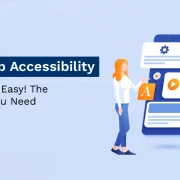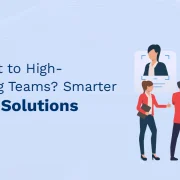
Compatibility Testing: Definition, Types & Process
Compatibility testing examines the compatibility of the application and the product with different computing environments. It is a part of non-functional testing. It tests the usability, reliability, and performance of the application and the product. The ISO 25010 standard defines it as a characteristic or extent to which a software system can exchange information with other systems whilst sharing the same software and hardware.
The extent to which a software product performs well while sharing a common environment and resources, without disturbing the performance of other product(s), determines its capacity for co-existence. While the extent to which it can exchange information with another system(s) and put it to use as well speaks of its interoperability. Compatibility testing is about testing whether an entire software system/product/component is compatible with the hardware platforms, operating system, database, web browsers, networks, and other software, both in terms of co-existence and interoperability.
Table of Contents:
- Two Types of Compatibility Testing
- How does Compatibility testing work?
- What are the Advantages of Compatibility Testing?
- What are the Possible Testing Defects?
- Types of Compatibility testing tools
- Conclusion
Two Types of Compatibility Testing
- Backward compatibility also called downward compatibility is when older versions of the application or software are tested for compatibility with newer hardware and software. It is relevant when some users may operate the application on old devices.
- Forward compatibility testing tests an application or software in new versions of hardware and software. It verifies if existing hardware and software perform smoothly with the newer version.
Within these two types of compatibility testing are several, more specific categories of testing. These categories are:
- Version testing – Verifies compatibility with different versions of the software.
- Browser (Cross-browser) testing – Verifies compatibility across different browsers — such as Internet Explorer, Google Chrome, Safari, and Firefox, as well as across browsers on different devices, such as laptops, Androids, tablets, and iPhones.
- Hardware testing – Verifies compatibility with various hardware configurations.
- Software testing – Verifies compatibility with other software.
- Network testing – Verifies compatibility and performance in different networks, such as 3G, 4G, and Wi-Fi.
- Device testing – Verifies compatibility with different devices, such as printers, USB port devices, Bluetooth and scanners.
- Mobile testing – Verifies compatibility with different mobile devices and their various platforms, such as iOS, and Android OS.
- OS testing – Verifies compatibility with different operating systems, such as Windows, Linux and Mac.
How does Compatibility testing work?
In compatibility testing, we define the set of environments or platforms the application is expected to work in. Following this, a test plan is developed to determine the most important issue(s) faced by the application so that they can be prioritized in these tests. It is critical to set up the environments to simulate what the end-user would experience, such as desktops, smartphones, tablets, etc. It is also important for the tester to have sufficient knowledge of various software, hardware, and platforms and how they respond in various configurations. Once the environment is set up, the tests can be run and any bugs and defects that are detected should be reported.
What are the Advantages of Compatibility Testing?
Some potential advantages of compatibility testing include:
- Ensures that the system or application functions properly in the intended environment: Compatibility testing helps to ensure that a system or application will function properly in the environment for which it is designed, such as a specific operating system or hardware platform.
- Identifies potential issues before deployment: By performing compatibility testing, you can identify any potential issues that may arise when the system or application is used in the intended environment. This can help you fix these issues before the system or application is deployed, which can save time and resources.
- Improves user experience: By ensuring that a system or application is compatible with the intended environment, you can improve the user experience by eliminating issues that may cause frustration or difficulty for users.
- Enhances security: Compatibility testing can help to identify potential security vulnerabilities that may arise when a system or application is used in the intended environment. By addressing these vulnerabilities, you can enhance the overall security of the system or application.
- Increases market reach: By performing compatibility testing, you can ensure that your system or application will work on a wide range of hardware and software platforms, which can help to increase your market reach and appeal to a wider audience.
What are the Possible Testing Defects?
Here are some defects that are typically found during compatibility testing: changes in font size, changes in the user interface, scroll bar issues, content alignment, and overlap issues.
Types of Compatibility testing tools
There are various tools that have been developed for the compatibility testing process. There are virtual desktops to assist in OS compatibility testing. They allow testers to run the software application in different operating systems as virtual machines. This helps to connect multiple systems and compare them to produce the best results. A few of the wide range of browser compatibility tools are BrowserStack, LambdaTest, CrossBrowserTesting, TestingBot, Browserling, and MultiBrowser.
Final Word
In conclusion, compatibility tests are very useful and important because they confirm whether a software application is compatible across all platforms and ensure a great customer experience.

Vice President – Content Transformation at HurixDigital, based in Chennai. With nearly 20 years in digital content, he leads large-scale transformation and accessibility initiatives. A frequent presenter (e.g., London Book Fair 2025), Gokulnath drives AI-powered publishing solutions and inclusive content strategies for global clients




